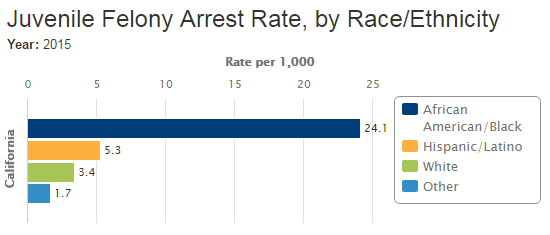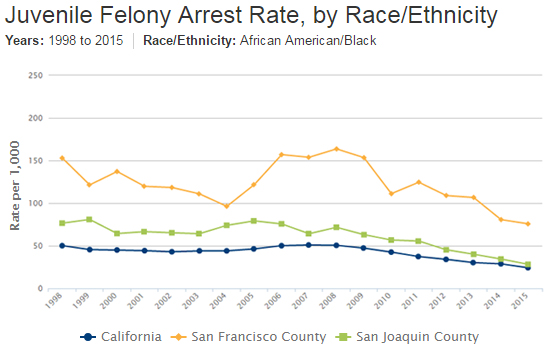|
Policy Implications
Youth who have contact with the juvenile justice system are at increased risk for a number of negative long-term outcomes when compared with the general youth population. For example, an estimated 30 percent of the youth who enter California’s juvenile justice system have mental health issues and those who have been held in detention have higher rates of attempted suicide and psychiatric disorders than youth who have not been detained. Additional long-term outcomes include injury, substance use and dependency, dropping out of school, and early pregnancy.
Policymakers within the justice, education, and social services systems can play a role in improving the way we address juvenile crime. Policy options include redirecting young offenders toward rehabilitative programs instead of the juvenile justice system and conducting case-specific assessments of an individual's circumstances.
Currently, there is not a minimum age for entering the juvenile court system in California. If passed, Senate Bill 439, under review by the legislature, would establish 12 years of age as the minimum age over which the juvenile court has jurisdiction in California.
See additional policy implications »
Learn more about SB 439 »
|



